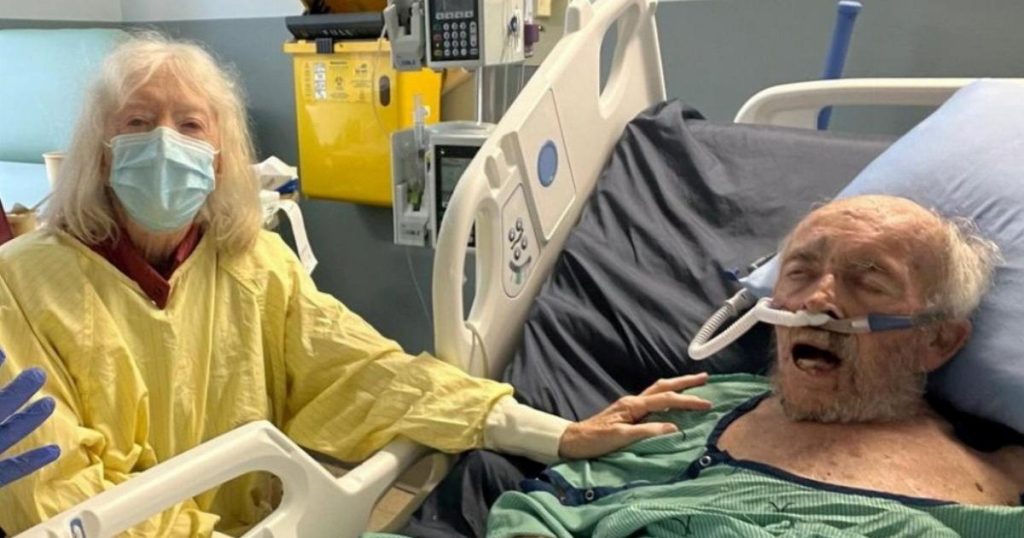A Devastating Loss at Sea: The Story of Alan Forster and the Norovirus Outbreak Aboard the P&O Arcadia
In September 2022, 77-year-old Alan Forster and his wife, Dianna, 79, embarked on what they anticipated would be a memorable month-long cruise aboard the P&O Arcadia. This voyage, their 48th cruise together, was meant to be a cherished experience, a journey across the Atlantic to New York and back. However, their idyllic vacation took a tragic turn when an outbreak of norovirus, commonly known as the "vomiting bug," swept through the ship, ultimately claiming Alan’s life. This tragedy has left Dianna grappling with grief and unanswered questions, prompting a legal investigation into the handling of the outbreak and the medical care provided to her husband.
Two weeks into their journey, Alan fell ill, exhibiting the classic symptoms of norovirus: diarrhea, stomach cramps, and vomiting. The virus, confirmed by the Centre for Disease Control and Prevention, had infected nearly 100 passengers on board. As Alan’s condition worsened, his kidneys began to fail, a severe complication that ultimately led to his hospitalization in St. John’s, Newfoundland, Canada. Despite receiving medical attention and being put on a drip, Alan succumbed to his illness in October, leaving his wife, children, and grandchildren devastated.
Dianna, consumed by grief and self-blame, struggles to come to terms with the sudden loss of her husband. She questions whether more could have been done to prevent the outbreak and provide timely medical intervention for Alan. Her account suggests a delay in receiving adequate medical attention, with Alan allegedly confined to his cabin for an extended period before being seen by medical staff. She further claims that her attempts to raise concerns about her husband’s deteriorating health were met with dismissal and reprimands from the ship’s crew. This has fueled her suspicions about the adequacy of the medical response and the overall management of the outbreak on board.
P&O Cruises, however, maintains that Alan received medical care on board until his condition deteriorated significantly, at which point he was transferred to a hospital in Newfoundland. The cruise line has launched an internal investigation into the circumstances surrounding Alan’s death, promising to address the allegations raised by Dianna and her legal representatives. This investigation will likely focus on the timeline of events, the medical care provided to Alan, and the overall handling of the norovirus outbreak on the ship.
The legal team representing Dianna and her family is determined to uncover the truth about the events leading to Alan’s death. Their investigation will delve into the cruise line’s protocols for managing infectious disease outbreaks, the adequacy of the medical facilities and staff on board, and the specific actions taken in response to Alan’s illness. They will also examine whether any delays in providing medical care contributed to the severity of his condition and ultimately his death.
This tragic incident underscores the potential risks associated with cruise ship travel, particularly the vulnerability of passengers to infectious disease outbreaks. It highlights the importance of stringent sanitation protocols, prompt medical intervention, and clear communication between the cruise line, medical staff, and passengers. The outcome of the ongoing investigation will hopefully provide answers to Dianna’s questions and shed light on the circumstances surrounding Alan’s untimely death, potentially leading to improvements in cruise ship health and safety procedures.
The legal battle that is unfolding will likely involve expert testimony from medical professionals, epidemiologists, and maritime law specialists. The evidence presented will be crucial in determining whether P&O Cruises exercised reasonable care in preventing and managing the norovirus outbreak and providing appropriate medical attention to Alan. The case also raises broader questions about the responsibility of cruise lines to protect the health and safety of their passengers, and the adequacy of existing regulations and oversight in the cruise industry.
Dianna’s pursuit of justice is not only a personal quest to understand the circumstances of her husband’s death but also a call for greater accountability within the cruise industry. The outcome of this case could have significant implications for future cruise ship operations, potentially leading to stricter regulations and improved procedures for managing outbreaks of infectious diseases. It also serves as a poignant reminder of the devastating consequences that can result when health and safety protocols are not adequately implemented and enforced.
Norovirus outbreaks on cruise ships are not uncommon, but the severity of this particular incident, resulting in a passenger’s death, raises serious concerns about the effectiveness of current preventative measures and the responsiveness of medical care. The legal investigation will hopefully uncover any systemic failures that contributed to this tragedy and lead to changes that will prevent similar incidents from occurring in the future.
The grief and trauma experienced by Dianna and her family are immeasurable. The loss of Alan has left a void in their lives that can never be filled. Their pursuit of answers and justice is a testament to their love for Alan and their determination to ensure that his death was not in vain. The outcome of their legal battle could bring a sense of closure and contribute to making cruise ship travel safer for all.




